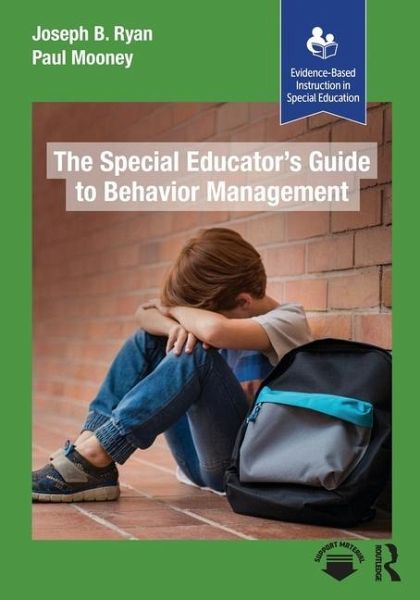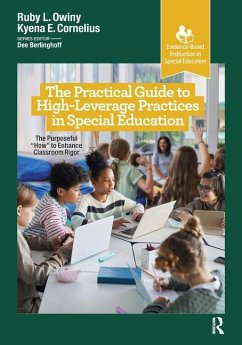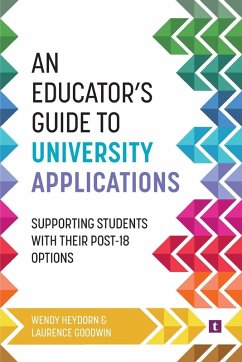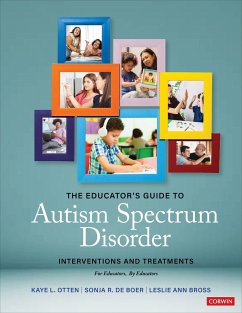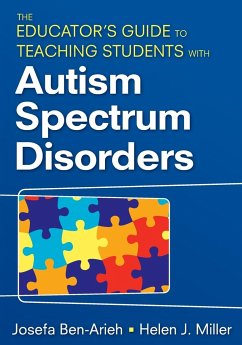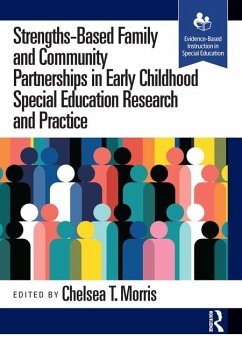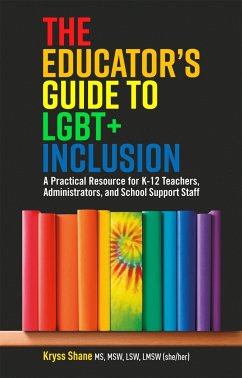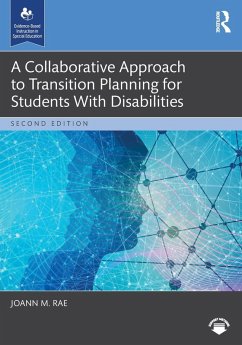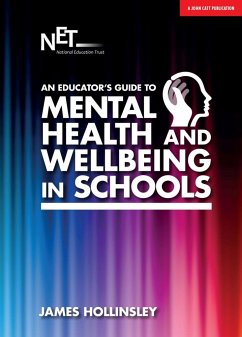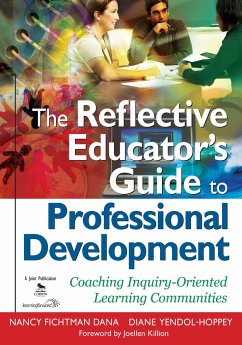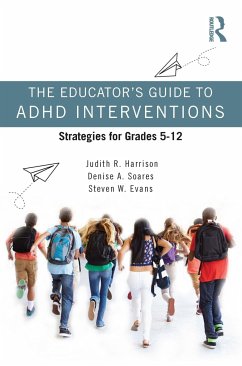The Special Educator's Guide to Behavior Management
Versandkostenfrei!
Versandfertig in 1-2 Wochen
Weitere Ausgaben:

PAYBACK Punkte
39 °P sammeln!




This accessible, practitioner-focused textbook details a comprehensive classroom behavior management framework that is easy to understand and implement within a K-12 classroom.
Joseph B. Ryan is the Sue Stanzione Distinguished Professor of special education at Clemson University. He has taught students with special needs from grades K through 12 across a variety of educational settings, including resource and self-contained classrooms, special day schools, and a residential treatment center. He is the founder and Executive Director of Clemson LIFE (Learning is for Everyone), a postsecondary education program for young adults with intellectual disabilities. Dr. Ryan has over 100 publications and is presently a three-term editor of the journal, Beyond Behavior. His research interests focus on behavioral interventions and enhancing post-school outcomes for individuals with disabilities. He is a Fulbright Scholar, and has been interviewed by Anderson Cooper, CNN, Headline News, New York Times, Wall Street Journal, and other leading periodicals. He has provided several U.S. Congressional Briefings on behavioral crisis interventions for schools. Paul Mooney is a professor and director of special education programs in the Louisiana State University (LSU) Lutrill & Pearl Payne School of Education. He presently teaches and directs licensure programming for preservice and inservice candidates at the main LSU campus. Dr. Mooney has co-authored more than 40 scholarly publications, including the book Instructional Practices for Students with Behavioral Disorders: Strategies for Reading, Writing, and Math (2008) with Drs. J. Ron Nelson and Gregory Benner. A former practicing school psychologist and present editor-with Dr. Ryan-of the practitioner-focused behavioral education journal, Beyond Behavior, his research interests include effective dissemination methods for research- or evidence-based academic and behavioral assessments and interventions.
Produktbeschreibung
- Evidence-Based Instruction in Special Education
- Verlag: Taylor & Francis Inc
- Seitenzahl: 286
- Erscheinungstermin: 3. Juli 2024
- Englisch
- Abmessung: 254mm x 178mm x 16mm
- Gewicht: 550g
- ISBN-13: 9781630915872
- ISBN-10: 1630915874
- Artikelnr.: 70769130
Herstellerkennzeichnung
Libri GmbH
Europaallee 1
36244 Bad Hersfeld
gpsr@libri.de
Für dieses Produkt wurde noch keine Bewertung abgegeben. Wir würden uns sehr freuen, wenn du die erste Bewertung schreibst!
Eine Bewertung schreiben
Eine Bewertung schreiben
Andere Kunden interessierten sich für




